สล็อตเว็บตรง ไม่ผ่านเอเย่นต์ เป็นแพลตฟอร์มเว็บสล็อต ที่คนเล่นเยอะที่สุด สล็อตออนไลน์ที่ดีที่สุด คุณสามารถเล่น เว็บสล็อตตรง ไม่ผ่านเอเย่นต์ มีความน่าเชื่อถือ สล็อตต่างประเทศ สล็อต ฝากถอน true wallet เว็บตรง ล่าสุด บนสล็อตเว็บตรงได้รับการจัดอันดับ เว็บสล็อตทรูวอลเลท ฝากเงิน ถอนสบาย ไม่มีขั้นต่ำ ให้มาแรงเป็นอันดับ 1 ของโลก เริ่มเล่น สล็อตออนไลน์ ได้เงินจริง สล็อตฝากถอน true wallet เว็บตรง ที่ให้แจ็คพอตแตกหนัก แตกจริง ตลอด 24 ชั่วโมงทุกวัน

ธีมเกมมีความหลากหลาย
ให้ความสนุกจากธีมเกมสล็อตที่ไม่มีใครเทียบได้ สล็อตเว็บตรง คัดเลือกมาเฉพาะเกมสล็อตที่ดีที่สุด เชื่อถือได้ และใช้งานง่าย สำหรับนักพนันทุกคน ยินดีต้อนรับสู่โลกแห่งเกมสล็อตที่ไม่เหมือนใคร! มีการดูแลและจัดการเฉพาะเกมสล็อตแตกรางวัลง่าย ธีมหลากหลายสูง เพื่อให้มั่นใจว่าเกมเหล่านั้นเชื่อถือได้ และเข้าถึงได้สำหรับผู้เล่นทุกคน ด้วยเว็บสล็อตออนไลน์ อันดับ 1 ที่มีให้เลือกมากมาย คุณสามารถรับประสบการณ์เล่นเกมสล็อตออนไลน์ขั้นสุดยอด ที่ได้เงินจริงรออยู่!
ธีมเกมมีความหลากหลาย
ให้ความสนุกจากธีมเกมสล็อตที่ไม่มีใครเทียบได้ สล็อตเว็บตรง คัดเลือกมาเฉพาะเกมสล็อตที่ดีที่สุด เชื่อถือได้ และใช้งานง่าย สำหรับนักพนันทุกคน ยินดีต้อนรับสู่โลกแห่งเกมสล็อตที่ไม่เหมือนใคร! มีการดูแลและจัดการเฉพาะเกมสล็อตแตกรางวัลง่าย ธีมหลากหลายสูง เพื่อให้มั่นใจว่าเกมเหล่านั้นเชื่อถือได้ และเข้าถึงได้สำหรับผู้เล่นทุกคน ด้วยเว็บสล็อตออนไลน์ อันดับ 1 ที่มีให้เลือกมากมาย คุณสามารถรับประสบการณ์เล่นเกมสล็อตออนไลน์ขั้นสุดยอด ที่ได้เงินจริงรออยู่!


PG SLOT เว็บตรง แตกหนัก เกมสล็อต PG อันดับ 1 ระบบ Auto PG Wallet
สล็อตเว็บตรง เว็บสล็อตวอเลท ไม่มีขั้นต่ำ ฝาก-ถอน True Wallet ไม่ผ่านเอเย่นต์ แตกหนัก แตกง่าย

สำหรับผู้ที่สนใจจะเลือกใช้บริการจาก สล็อตเว็บตรง ไม่ผ่านเอเย่นต์ ทรูวอเลท ก่อนอื่นเรามาดูความหมายกันก่อนว่า สล็อตทรูวอเลทคืออะไร?สล็อตทรูวอเลท คือ เว็บสล็อตออนไลน์ ที่มีการเปิดให้ทำธุรกรรมฝากถอนผ่านระบบทรูวอลเลท ส่วนใหญ่จะมีในเว็บสล็อตที่เป็นเว็บตรงไม่ผ่านเอเย่นต์ การเรียกระหว่าง “สล็อตทรูวอเลท” และ “สล็อตวอเลท” อาจแตกต่างกันเล็กน้อย แต่ในเชิงความหมายจะเหมือนกันต่อจากนี้เราจะมาแนะนำวิธีการเลือก สล็อตเว็บตรง ไม่ผ่านเอเย่นต์ ทรูวอเลท ที่จะทำให้คุณได้เว็บตรงที่หลังการสมัคร และยังช่วยสร้างความมั่นใจ พร้อมระบบที่ปลอดภัยมากยิ่งขึ้น
ขอแนะนำ สล็อตเว็บตรง ที่อัพเดทมาใหม่ในปี 2024 แพลตฟอร์มเกมทันสมัย ฝากถอน สล็อต True Wallet ไม่มี ขั้น ต่ำ ได้รับการออกแบบให้ใช้งานง่าย รับประกันการนำทางไปเล่นเกมที่ง่ายดายและให้ประสบการณ์ที่ราบรื่น เพื่อรองรับทั้งผู้เล่นที่มีประสบการณ์และผู้มาใหม่ เว็บสล็อตทรู วอลเลท ใหม่ล่าสุด 2023 ระบบสามารถเข้าใจได้ง่ายทุกส่วน ตอบสนองความต้องการของนักพนันมือใหม่
สล็อตเว็บตรง ไม่ผ่านเอเย่นต์ ฝากถอน ไม่มี ขั้นต่ำ พร้อมให้บริการคุณตลอด 24 ชั่วโมง รับรองว่าคุณจะได้รับประสบการณ์ที่ดีที่สุดกับทุกเกมที่เลือกเล่น ให้บริการระบบเกมสล็อตออนไลน์ด้วยเว็บตรง เกมสล็อตลิขสิทธิ์แท้ และไม่เกี่ยวข้องกับตัวแทนใด ๆ ได้รับการจัดอันดับให้เป็นเว็บสล็อตอันดับ 1 ที่นำเสนอระบบจัดการเงินที่ดีที่สุด การฝากและถอนเงินสามารถทำได้โดยไม่มีข้อกำหนดขั้นต่ำ และยอมรับการใช้งาน เว็บสล็อตตรง ไม่ผ่านเอเย่นต์ True Wallet ที่พร้อมให้บริการตลอดเวลา
สล็อตเว็บตรงฝากถอน true wallet ไม่ผ่านเอเย่นต์ ช่วยให้นักพนันทุกคนสามารถเข้าถึงเกมทำเงินได้อย่างปลอดภัย และสมัครสมาชิกเพื่อรับประสบการณ์สล็อตออนไลน์ที่ดีที่สุดได้อย่างอิสระ ขั้นตอนการลงทะเบียนสมัคร สำหรับ เว็บตรงสล็อต นั้นง่ายมาก คุณสามารถเป็นสมาชิกและเริ่มเล่นเกมสล็อตออนไลน์ ด้วยเงินจริงผ่านระบบอัตโนมัติของทางเว็บ ในระยะเวลาสมัครเริ่มต้นแค่ไม่กี่นาที
โปรยอดนิยม สมัครสมาชิก สล็อตเว็บตรงทรูวอลเลท เว็บสล็อตลิทสิทธิ์แท้ 100%
คำถามที่พบบ่อย
ทำไมต้องเดิมพันกับ สล็อตเว็บตรง เว็บสล็อต ทรูวอลเลท ใหม่ล่าสุด เท่านั้น
เพราะเป็นผู้ให้บริการเดียว ที่สามารถสร้างความมั่นใจในเรื่องของการรวมเกม สล็อตเว็บตรง ที่ดีที่สุด แตกรางวัลได้ดีจริง ไม่มีการล็อค User ทำให้คุณชนะเดิมพันแล้วรับเงินได้ทันทีอย่างมั่นใจ ไม่ต้องรอเวลานาน
ฝากถอนไม่มีขั้นต่ำ สล็อตทรูวอลเลท ได้เงินจริงไหม
ได้เงินจริงแน่นอน ระบบของสล็อตทรูวอลเลท สล็อตเว็บตรง อันดับ 1 ที่ดีที่สุด จะเป็นการเชื่อมต่อกับแอพพลิเคชั่น True Money wallet ที่ใช้ระยะเวลาในการทำธุรกรรมฝาก-ถอนเงินเพียงแค่ 1-3 วินาที เมื่อคุณมีการแจ้งฝากถอนเป็นที่เรียบร้อย เงินจะถูกโอนเข้าสู่หมายเลขโทรศัพท์นั้น ๆ และกลายมาเป็นเงินที่อยู่ภายในกระเป๋าดิจิตอล ที่คุณสามารถนำไปใช้จ่ายได้อย่างรวดเร็ว
สล็อตเว็บตรง100% และ สล็อตวอเลท ติดต่อแอดมินได้เวลาไหน
ติดต่อ Admin ของทาง สล็อตเว็บตรง ได้ตลอด 24 ชั่วโมง เพราะถ้าขึ้นชื่อเป็นเว็บตรง เว็บสล็อต ทรูวอลเลทแล้ว รับประกันได้เลยว่าทุกช่วงเวลาและทุกวัน คุณจะสามารถเข้าไปติดต่อ เพื่อการพูดคุย ขอคำแนะนำ สอบถาม หรือแจ้งแก้ไขปัญหาต่าง ๆ ได้ทันที
สามารถทดลองเล่นสล็อตเว็บตรง แบบฟรีได้ด้วยหรือไม่?
คุณสามารถ ทดลองเล่นสล็อตเว็บตรง ได้เลยผ่านระบบของ PGSURE รวมไปถึง ทดลองเล่นสล็อต PG สามารถเริ่ม ทดสอลเล่นสล็อตฟรี โดยไม่มีค่าใช้จ่ายใดๆ เมื่อคุณมั่นใจแล้วว่าสามารถทำกำไรได้ แล้วค่อยเติมเงินจริงเพื่อเล่นสล็อต มีคำถามใดๆปรึกษาซัพพอร์ตของเราได้ทันที
PG SLOT สล็อตเว็บตรง ไม่ผ่านเอเย่นต์ ไม่มีขั้นต่ำ เว็บสล็อตทรูวอเลท ไม่มีบัญชีธนาคาร 1 บาท ก็ฝากถอนได้ สมัครสล็อตเว็บตรง 100% เว็บตรงลิขสิทธิ์แท้ True Wallet ได้เงินจริง API ปลอดภัย ไม่มีล็อคยูส











